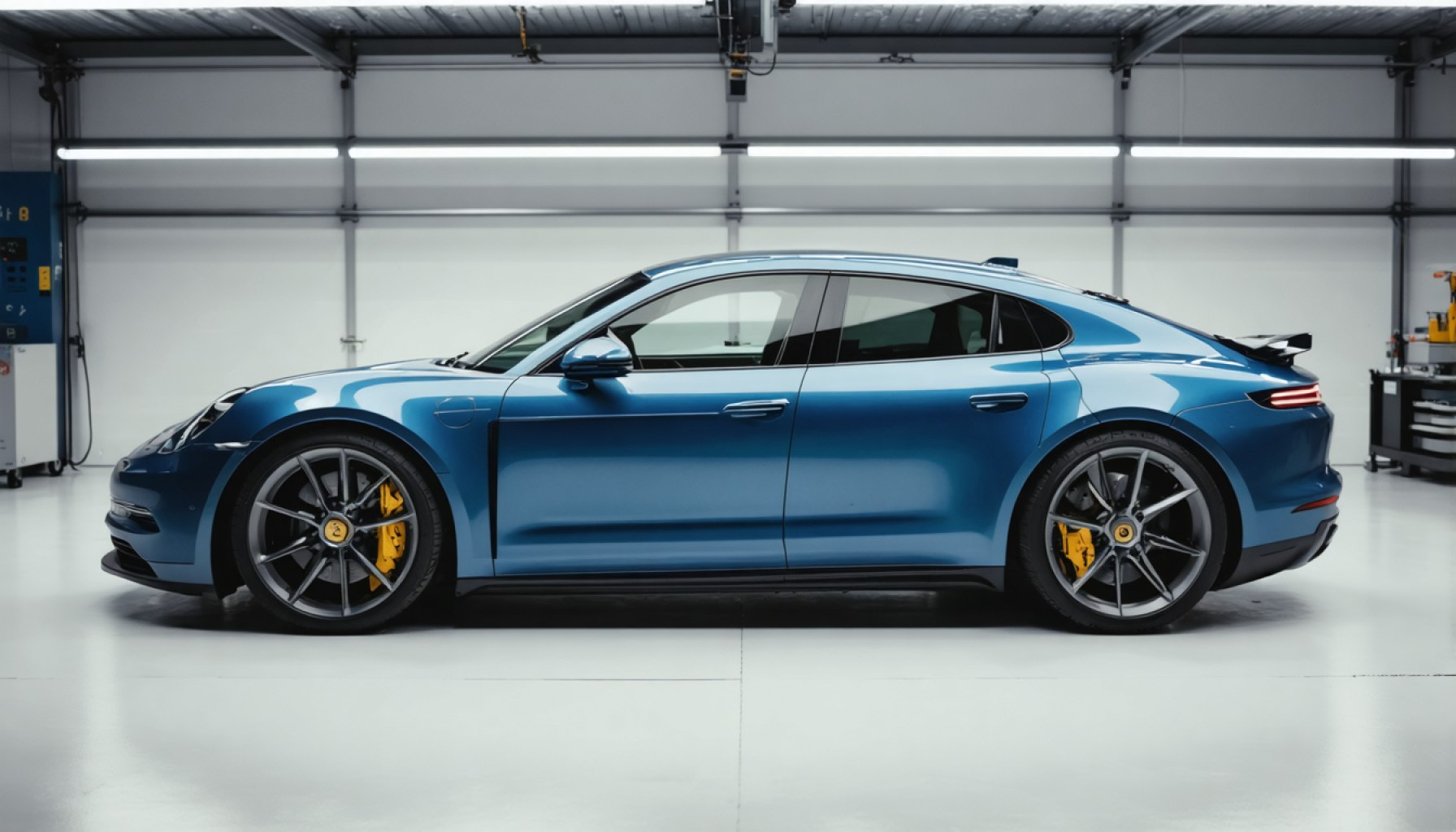- Porsche introduces an innovative project focused on recycling high-voltage electric vehicle (EV) batteries, aligning luxury with sustainability.
- The initiative aims to extract and reuse valuable materials, such as nickel, cobalt, manganese, and lithium, from spent batteries.
- A key outcome is the creation of “black mass,” from which Porsche plans to refine elements for crafting superior new EV batteries.
- The project supports a circular economy, boosting environmental sustainability and stabilizing resource supply chains amid geopolitical uncertainties.
- Porsche’s efforts position it as a proactive leader ahead of pending EU regulations, which will require stricter recycling practices by 2031.
- This endeavor reinforces Porsche’s commitment to progress, reflecting a broader industry shift toward combining luxury with eco-consciousness.
The modern automobile industry stands at a crossroads, where luxury embraces sustainability—making flamboyant excess compatible with eco-friendly responsibility. Porsche, ever at the forefront of innovation, has unveiled a pioneering project that promises to redefine how electric vehicle (EV) batteries are recycled, turning an environmental challenge into an opportunity.
In an ambitious move towards sustainability, Porsche embarks on a multi-phase pilot project designed to recycle high-voltage EV batteries efficiently. This is not merely an exercise in waste management but a calculated maneuver to harness valuable materials trapped within these lifeless energy cells. The German automaker is diving headfirst into the depths of these used batteries, extracting vital elements such as nickel, cobalt, manganese, and lithium—elements that the automotive industry so avidly cherishes.
At the heart of Porsche’s initiative is the creation of “black mass,” a granular concoction formed through mechanical shredding of spent batteries. So far, Porsche has succeeded in producing approximately 65 tonnes of this material from various development vehicle batteries. But this is only the beginning; from this black mass, Porsche refines the elements to meet the impeccable performance standards required for crafting new, world-class EV batteries.
Visualize gleaming splinters of aluminum and copper emerging from the recycled loom, alongside bags of carefully sifted black granules. Each particle represents a sliver of the future, a testament to Porsche’s commitment to leaving no stone—or battery cell—unturned in its quest for sustainability.
The endeavor does not halt with mere extraction. In the project’s forthcoming stage, Porsche aspires to reincarnate these materials into new battery cells, weaving a significant fraction of recycled content into the fabric of future vehicle models. This circular economy not only answers the growing environmental consciousness but also shores up Porsche’s supply chain against fluctuating geopolitical landscapes and raw material markets.
Porsche’s initiative unfolds against the backdrop of impending EU regulations, which by 2031 will demand stringent recycling quotas and material traceability—a domain where Porsche intends to lead rather than follow. With this pilot project, the automaker envisions a self-sustaining cycle, propelling forward on the wings of innovation and responsibility.
As global pressures and environmental mandates increase, Porsche’s pilot project is poised to set a precedent, echoing a clear message: the future of automotive luxury is not only about speed and design but equally about responsibility and sustainability. This vision reaffirms Porsche’s role not just as an emblem of luxury but as a harbinger of sustainable change in the high-paced automotive world.
In a world where resources dwindle, Porsche’s transformative vision offers a golden opportunity—an intersection where luxury meets sustainability, and waste turns into treasure. The race is on, and the industry watches with bated breath as Porsche paves this uncharted road toward an eco-conscious automotive future.
Porsche’s Bold Step Into Sustainable Battery Recycling: What You Need to Know
Exploring the Future: Porsche’s Revolution in EV Battery Recycling
The intersection of luxury and sustainability is being critically redefined in the modern automotive industry. On this path, Porsche has ventured into a pioneering project that seeks to revolutionize electric vehicle (EV) battery recycling. This ambitious initiative not only offers a sustainable waste management solution but also aims to secure vital materials for future manufacturing. Here’s an in-depth look into this transformative process, and what it means for the industry.
Key Facts About Porsche’s Battery Recycling Initiative
1. Recycling Methodology:
– The core of Porsche’s recycling process involves creating “black mass” from retired batteries. This substance, produced through the mechanical shredding of battery cells, contains valuable materials such as nickel, cobalt, manganese, and lithium.
2. Pilot Project Achievements:
– To date, Porsche has extracted approximately 65 tonnes of black mass from development vehicle batteries, showcasing the potential scale of this initiative.
3. Circular Economy Vision:
– Porsche aims to close the loop by reincorporating the refined elements from black mass back into new battery cells. This approach not only supports environmental goals but also mitigates supply chain risks associated with raw material availability.
4. Compliance and Innovation:
– Anticipating new European Union regulations by 2031, Porsche is setting a precedent in material recycling quotas and traceability. The company is proactively aligning its operations with impending legislation.
How Porsche’s Initiative Impacts the Industry
– Market Trends:
– The automotive industry is experiencing a paradigm shift towards sustainable practices. According to a report by BloombergNEF, global demand for battery metals is expected to rise sharply, underscoring the significance of recycling.
– Competitor Analysis:
– While other automakers explore similar paths, Porsche’s project stands out due to its emphasis on both luxury and sustainability. This positions Porsche as a leader in setting industry standards.
– Real-World Use Cases:
– Porsche’s recycling method offers a scalable model that other manufacturers could adopt, potentially leading to a broader industry shift towards recycling end-of-life batteries.
Controversies and Limitations
While pioneering, Porsche’s initiative is not without challenges:
– Technological Hurdles:
– Perfecting the extraction and refinement processes to achieve performance standards remains intricate and could face technological bottlenecks.
– Economic Viability:
– The cost-effectiveness of scaling battery recycling techniques could be a concern, particularly in comparison to the fluctuating prices of virgin materials.
Actionable Steps and Quick Tips
– Sustainability Leadership:
– For businesses looking to follow in Porsche’s footsteps, investing in research and development to create efficient recycling processes is paramount.
– Consumer Awareness:
– Consumers can contribute to sustainability by opting for brands with transparent recycling practices and sustainable initiatives.
Interested in More? Check Out [Porsche’s Homepage](https://www.porsche.com)
Porsche’s forward-thinking project is a testament to the brand’s commitment to innovation and sustainability. As the industry anticipates the next decade, this initiative could spell a significant shift in how luxury and responsibility are balanced, offering a sustainable future that challenges the automotive sector to rethink its core practices.
















